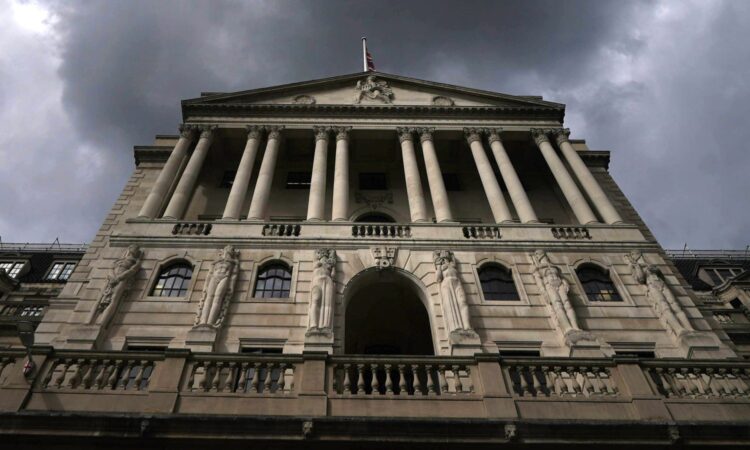
The decision comes despite official figures yesterday which revealed inflation had fallen to the Bank’s target of 2% for the first time in nearly three years.
By Daniel Binns, business reporter
The Bank of England has held interest rates at 5.25% for the seventh time in a row.
The decision to maintain the cost of borrowing comes despite official figures yesterday which revealed inflation had fallen to the Bank’s target of 2% for the first time in nearly three years.
However, the move by its Monetary Policy Committee (MPC) to continue the current 16-year high in rates had been widely expected by economists and financial markets.
Seven members of the panel voted to hold, while the remaining two backed a 0.25 percentage point cut.
Governor Andrew Bailey said policymakers “need to be sure that inflation will stay low and that’s why we’ve decided to hold rates at 5.25% for now”.
Read more: Bank of England leaves door open for rate cut in August
Following the decision, investors now think the probability of the Bank making a rate cut in August is 44% – versus 56% for another hold.
But the market thinks there is a 71% probability of a reduction in September.
Some of those on the MPC said “more evidence of diminishing inflation persistence was needed” before they could cut rates.
However, two members of the committee – Swati Dhingra and Dave Ramsden – again voted for a reduction, arguing that inflation looked set to remain at normal levels.
The panel also insisted that the “timing of the general election on 4 July was not relevant to its decision”.
The Bank began steadily increasing rates in December 2021 as part of efforts to bring down inflation – which soared in the wake of the COVID pandemic and amid the war in Ukraine.
The recent spike in the pace of price rises peaked at 11.1% in October 2022 – the highest level since 1981.
While inflation has now come back down, officials remain concerned and fear it could tick up again later this year.
Wednesday’s figures from the Office for National Statistics (ONS) revealed that services inflation – which covers sectors such as the hospitality industry – had only fallen to 5.7% in May, less than expected.
The data prompted financial markets to push back their expectations of the Bank’s first rate cut of the year.
Read more from business:
Sainsbury’s sells banking arm to NatWest
Care home operator Four Seasons plots sale
Taylor Swift shows ‘to boost economy by £300m’
The ONS said on Wednesday that the UK’s consumer prices index (CPI) rate of inflation, for the year to May, was the lowest since July 2021.
Officials said the drop was largely down to falling food prices, although the cost of motor fuel rose slightly.
The prospect of a rate cut this week was dealt a blow last month when wage growth – a driver of inflation – came in higher than expected.
Economist Ruth Gregory, from research firm Capital Economics, said she still believed there was a “good chance” of a rate cut in August – and that rates could drop to 3% by next year.
She added: “There was never much chance that the Bank would cut rates at this month’s meeting, given recent upside surprises on services CPI inflation and wage growth and the upcoming election.”
However, Ms Gregory said the language in the Bank’s latest minutes hinted that the MPC was willing to make a move in August, and the decision to hold had been “finely balanced” among its members.
Some commentators expressed dismay at the decision.
Jonathan Bone, a mortgage adviser at Better.co.uk, accused the Bank of being “obstinate” and “unwilling to take action despite widespread criticism”. He added: “Those with mortgages are desperate for relief.”
The Federation of Small Businesses also described the Bank’s move as “disappointing”.
National chair Martin McTague said: “The high plateau rates are currently stuck at is now undermining growth as small firms struggle to access affordable finance to help them expand.
“Inflation is now back on target and holding off a cut in the base rate until a future date risks snuffing out tentative signs of a recovery in GDP [gross domestic product], with the flat growth in April a warning sign.”
The decision comes after the European Central Bank cut interest rates earlier this month despite eurozone inflation rising from 2.4% to 2.6% in May.





